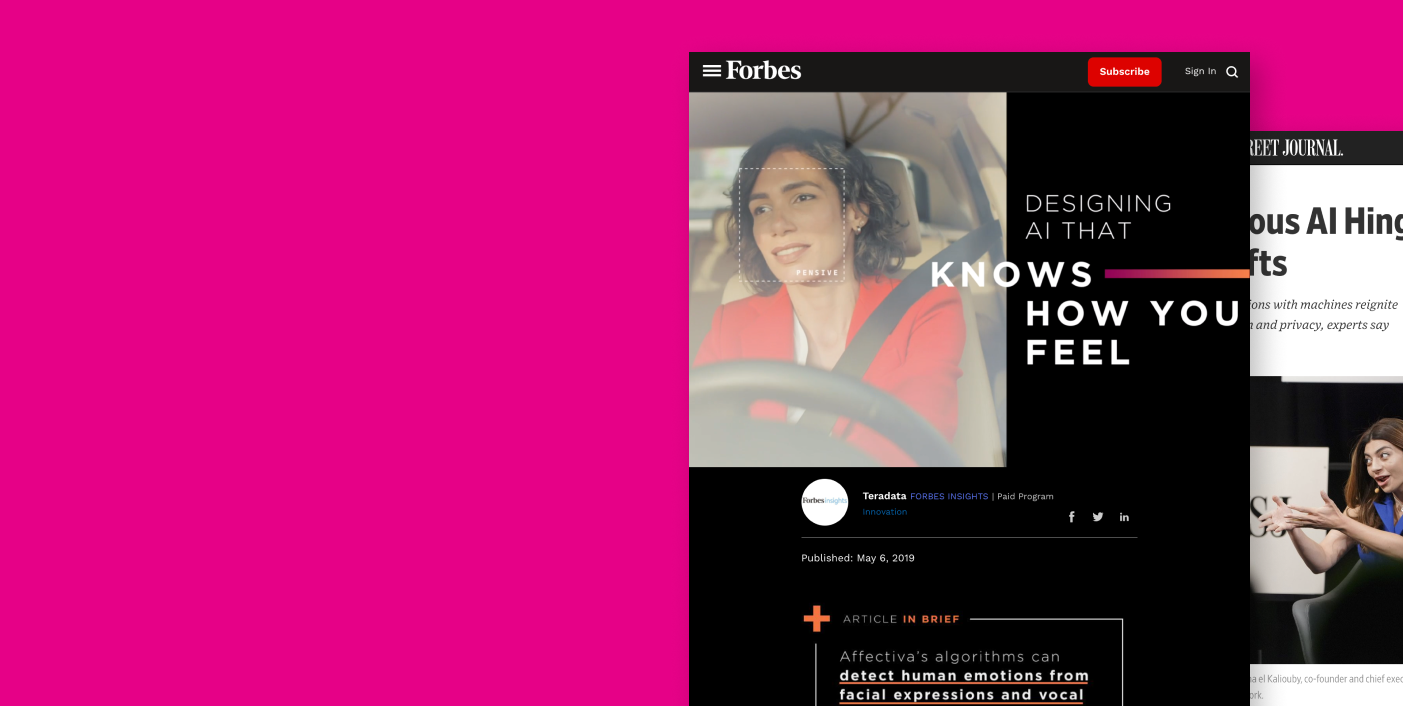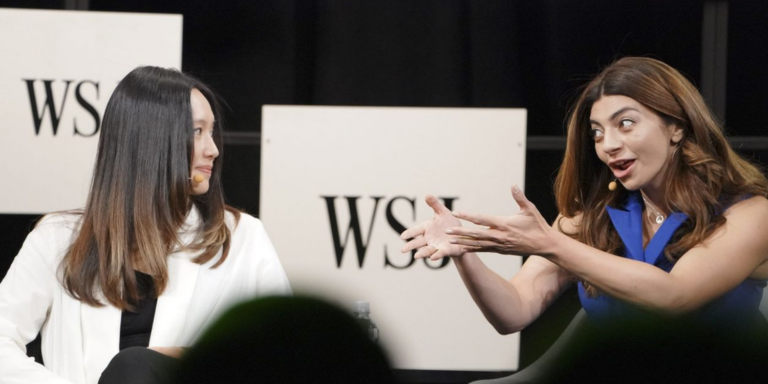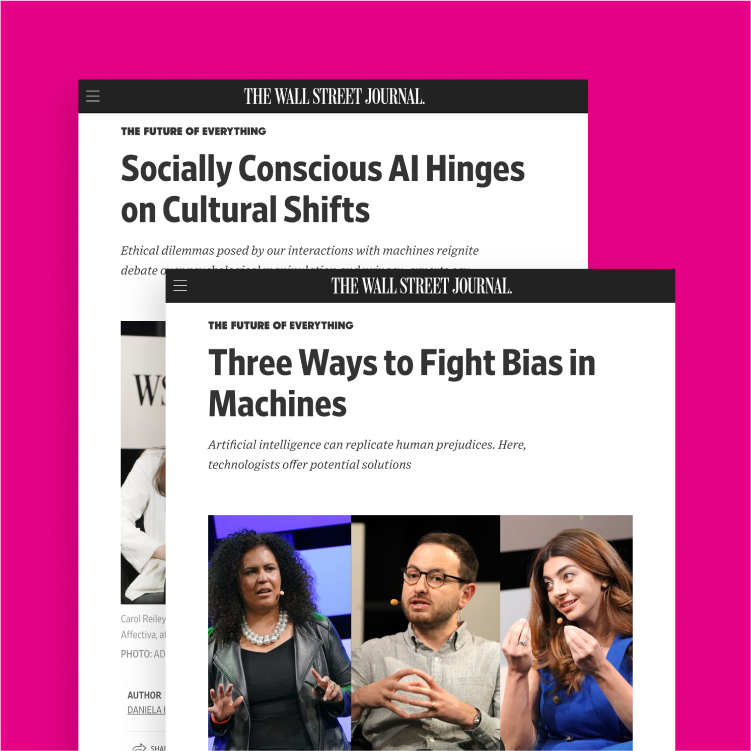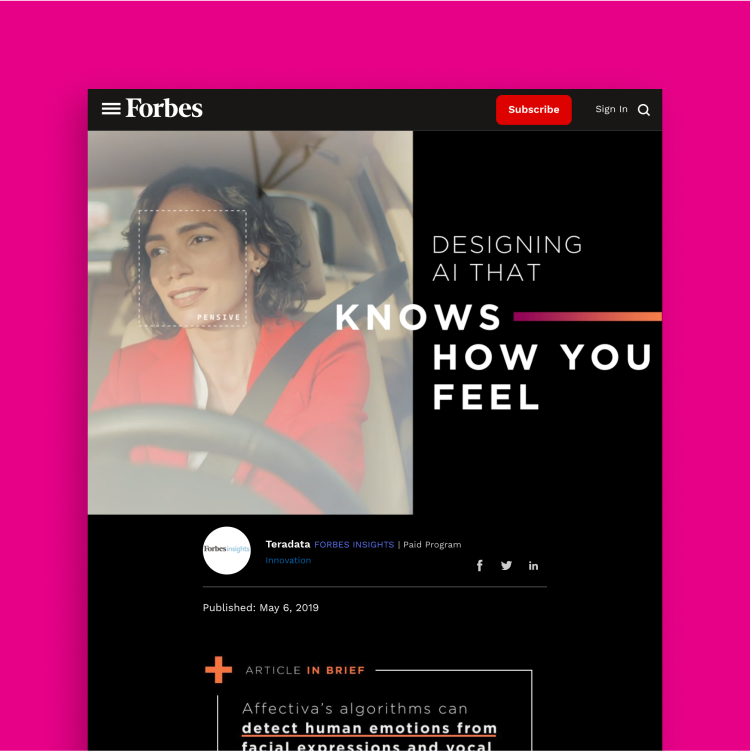
Affectiva Amplifies Its Voice in AI Ethics With PR Campaign
AI technology company increases visibility as a thought leader using speaking opportunities and strategic PR.
Overview
Affectiva is an established emotion AI company that recognizes artificial intelligence is at an inflection point. With growing buzz around how AI will interact with humans across industries like healthcare and automotive, Affectiva wanted to facilitate conversations about the ethics of these human-technology interactions, leveraging their expertise and industry knowledge.
We stepped in to help Affectiva strategize a PR campaign that landed top-tier media coverage and positioned the brand and its executives as a thought leader in AI ethics, driving authentic conversations about concerns that plague the industry.
media placements
speaking opportunities secured for Affectiva’s CEO
increase in top-tier mentions over six months

The Challenge
Concerns about bias and privacy dominate conversations about AI ethics. At the end of the day, AI systems capture a significant quantity of data from people they interact with, creating serious privacy concerns for consumers and technology users. Affectiva wanted to position itself as a thought leader to Fortune 500 customers and technology partners around the sensitive issue of AI ethics and data privacy, which meant securing coverage in top-tier business media.

The Solution
To increase Affectiva’s visibility and brand affinity, our team set out to gain high-value media coverage through two tactics:
Crafting a winning talk track
Affectiva and its CEO, Dr. Rana el Kaliouby, already had a foot in the door as an emerging voice in AI ethics, but they needed more exposure. We helped Affectiva craft a story that went beyond the need for AI ethics and discussed how companies can take concrete steps to address ethical concerns in the way they develop and deploy AI technology. The story focused on the areas where Affectiva was successful as well as the areas in which they saw room for improvement, enhancing the authenticity and credibility of both the narrative and the brand’s thought leadership. This talk track would be key for landing future media and speaking opportunities.
Auditing the media landscape
Coverage in top-tier business outlets was a primary goal of the engagement — Affectiva wanted to get in front of Fortune 500 customers and show how they are tackling major concerns in the industry. The team conducted a media audit to identify specific opportunities and angles of interest in publications read by the target audience. This included alternative routes beyond simply pitching a story, such as speaking opportunities, live events, podcasts, and op-eds to maximize exposure.

The Results
Since the launch of the talk track around AI ethics, Affectiva has been mentioned in more than 70+ pieces of coverage regarding their approach to AI ethics, including top-tier outlets like Fortune, Forbes and Inc. The team’s PR efforts also drove speaking opportunities for Affectiva’s CEO at The New York Times New Work Summit, The Wall Street Journal Future of Everything Festival, Fortune CEO Initiative and Aspen Ideas Festival, enabling Affectiva to showcase its industry knowledge and ethical insights to the Fortune 500 executives they needed to reach. As a result, Dr. Rana el Kaliouby and Affectiva continue to engage in leading-edge conversations about AI ethics across the industry.

